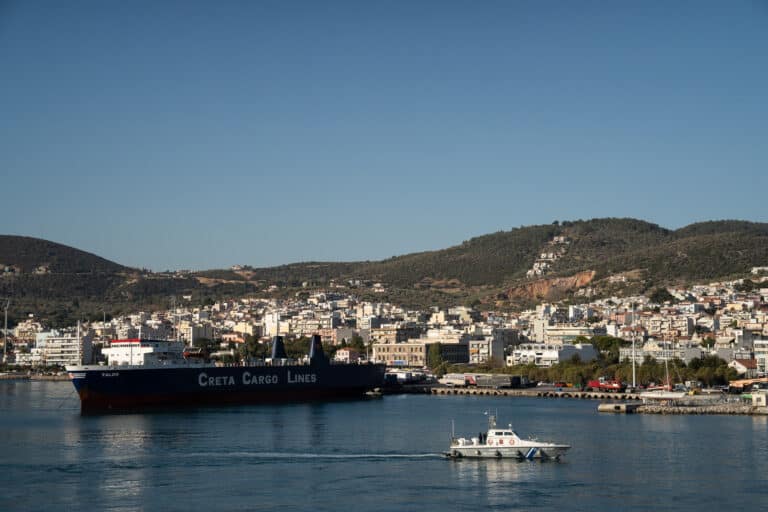by David Ball and Jerry Stein
One week after the Ontario government threatened to halt maintenance of a back road used for wild rice and berry harvesting, fishing, hunting, and trapping, members of Grassy Narrows First Nation in northwest Ontario community renewed their eight-year blockade to assert their territorial rights.
Led by grassroots women from the Anishinabek community, the blockaders prevented Ontario’s Ministry of Natural Resources (MNR) from interfering with their work crew, whom the MNR visited three times and ordered to purchase a gravel permit. The MNR representatives also issued a stop work order citing environmental, public and worker safety concerns.
This action continues the longest blockade in Canadian history, which since 2002 has successfully stopped clear-cut logging on Grassy Narrows territories and has raised concerns about the government’s lack of action on mercury poisoning in the community.
“We have our own government here,” said Robert Keesick, capital projects manager for Grassy Narrows First Nation, who is responsible for the road maintenance contract. “We have our own way of dealing with the environment, of taking care of our workers. This is our territory, so we have the right to use the land.”
“We support our chief and council. They are the authority here. They received their jurisdiction when they signed the treaty. All we’re doing is fixing a road that was there already, and yet [MNR is] not doing anything about the mercury in the river,” he added.
A sign across the blockaded road read “Ministry of No Respect: Keep Out,” and community members maintained a twenty-four-hour presence at Slant Lake, just outside the reserve, allowing only non-MNR traffic to pass.
The MNR expressed concerns to local media about damage to a beaver pond, as well as worker and public safety issues, where Grassy Narrows contractors were repairing washouts–beaver damage to back-roads on the First Nations traditional territories. Community members, however, considered the government’s actions harassment and an infringement on their treaty rights.
“When they talk about environmental concerns or workers’ safety, it’s like they think we’re dumb,” said Roberta Keesick, one of the community members active in the blockade. “Of course we think about this stuff too, otherwise we wouldn’t be here, we wouldn’t have lasted this long.
“The funny thing is that MNR is saying they’re concerned about a beaver pond, but the government pays people to kill beavers because they call them ‘nuisance beavers,’ because they’re wrecking the roads. Their quibbling over a beaver pond is contradictory. We don’t need a permit; we already got permission from the Creator,” she added.
Christian Peacemakers Teams (CPT) and other supporters joined the blockade.
“All this is towards our sovereignty, it’s about the same thing as other Aboriginal struggles,” Roberta Keesick said. “We hope others will feel less intimidated nor feel they have to get permits and permission. Lots of people feel they can’t fight it. When we do our blockade, we hope it opens people’s eyes to who they are as Aboriginal and Anishinabek.”
Grassy Narrows members use the back road they are maintaining to access hunting, trapping, wild rice and berry harvesting areas, rights enshrined under Treaty 3, and for access to a fishing lodge at Ball Lake. The Ontario government granted the fishing lodge to the First Nation as part of compensation for mercury pollution in 1986, and stopped maintaining the road following the Slant Lake blockade begun in 2002.
Take action
Call the MNR Kenora office to express your support for the people of Grassy Narrows: (807) 468-2501Some points to make:
1. Grassy Narrows has the right to determine what happens on their territory, according to Treaty 3. CPT supports them in their decisions.
2. CPT constituents also support Grassy Narrows’ call to end clear-cut logging, for justice on issues of mercury pollution and other contaminants, and respect for the sovereignty granted them by the Creator.




